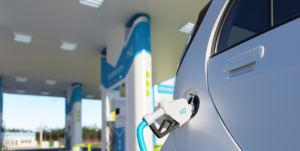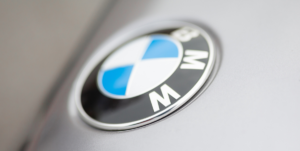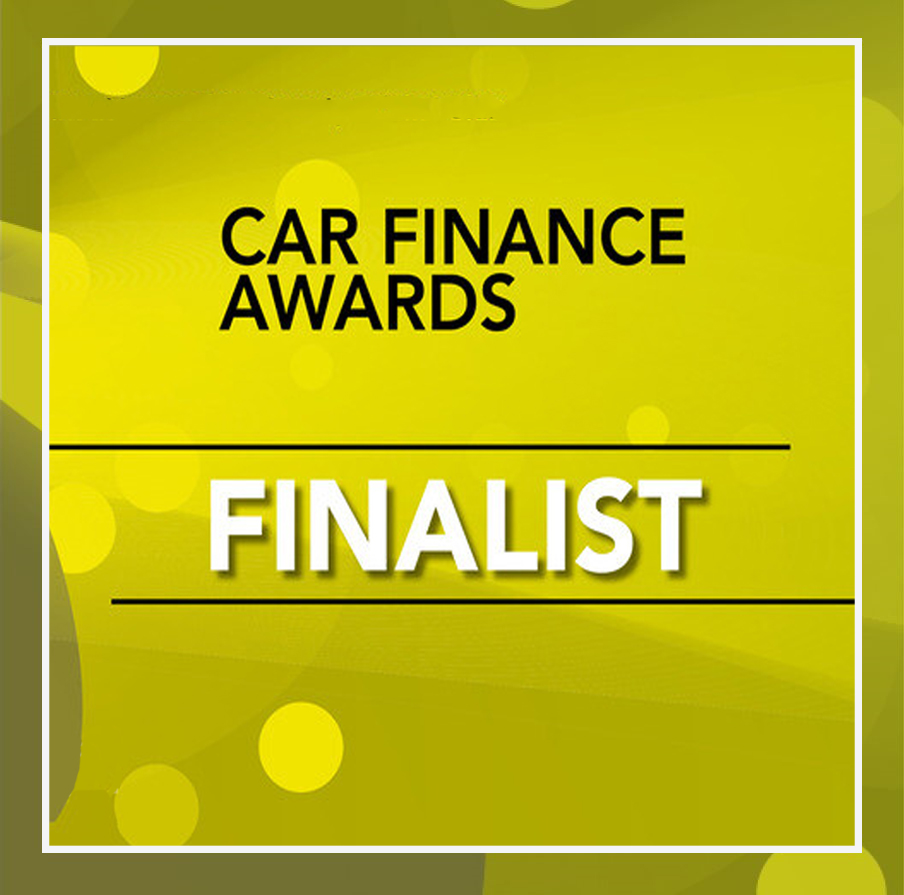Acknowledge the Possibility of Fraud
Too often, car dealers don’t pay enough attention to fraud. Over time, it can leave dealers feeling immune to fraud because they haven’t had a problem with it, or because they have been able to work out an arrangement with the lender when it does happen. Dealers should be alert because this could all change. Here are five reasons why used car dealers should be very concerned with fraud.
1. Fraud Rates Are Rising and Becoming More Common in Auto Lending
Each year, fraud rates are rising in auto lending. As it rises, the odds that it will strike your dealership are high. Unfortunately, fraud rates are increasing as a result of sophisticated con artists discovering new techniques to conceal their scams.
Although there are numerous ways that identity theft can occur in the automotive industry, the following are the most common types:
1. Synthetic Identities
Synthetic identities are one of the forms of identity fraud that are increasing relatively quickly.
In order to establish new credit profiles and submit loan applications, synthetic fraud exploits false personally identifying information. Then, fraudsters can buy expensive products like used vehicles without having any intention of ever paying them off. By using phoney security numbers, they may get away with it so simply and their actions will go unnoticed for a very long time. Since fake synthetic identities are hard to spot, fraudsters frequently avoid detection using less sophisticated fraud prevention strategies.
Synthetic identities are catching like wildfire, as they can be almost impossible for a used car dealer to spot by just looking at a driving licence.
2. True Name Fraud
True name fraudsters, as opposed to synthetic fraud, make substantial purchases and applies for loans using factual information. True name fraud is when a criminal uses stolen identity documents to represent themselves as someone else with superior credit in order to apply for a loan in that person’s name.
They will then sell the car to other fraudsters to liquidate and transport overseas. It is much less possible for a lender/ dealer to recover the vehicle or the payments once the vehicle has been purchased and taken away from the showroom.
These fraudsters can easily commit true name fraud since they will use a stolen driver’s licence and social security number. The good news is dealerships can prevent fraud before it results in the successful theft of a vehicle by using enhanced due diligence platforms.
3. Lax Fraud Controls
Lax fraud controls make committing fraud a lot easier. Fraud is much easier to commit when fraud controls are lax. As a result of their reputation for having lax fraud controls, the dealerships in this instance are the victims of their own actions. As soon as a dealership develops a reputation for having insufficient fraud procedures, they are a big and simple target for fraudsters.
If dealerships’ “Know Your Customers” systems don’t stop fraud and have no capacity to push back, having insufficient fraud controls could make them accountable. If there are evident indicators of fraud that the dealership did not notice when a loan defaults, the lenders may decide to buy back such loans from the dealership and look into the application that the dealership handed the fraudster.
4. Document Fraud
If the dealership takes the time to carefully review all the facts, document fraud will be easier to detect. Document fraud occurs when someone fabricates information in order to get a car and become less trackable.
Fraudsters carry out this by falsifying information in the “Know Your Customer” documents that they provide to the dealership, such as their salary or the stability of their residence. They benefit from a higher credit limit than they would otherwise get, to help them receive reduced interest rates. If your used car dealership has the appropriate security measures in place, this can be avoided more effectively.
When the fraudster enters a dealership, they often look like a great customer. Their credit scores are typically high, they seemingly have high income and low debt. But it is all a façade, and those great looking customers are nothing but wolves in sheep’s clothing.
We’re not trying to scare you, as bigger car dealerships are more likely to be targeted, but that doesn’t mean independent used car dealerships are immune.
2. Statistically, Fraud Will Impact You Someday
Statistically, most dealers will experience at least one fraud attempt a year. (Which is ironic since the outdated stereotype is that ‘used car dealers are the scammers’).
Say your dealership finances 400 loans a year, then you will likely have one or two cases of fraud this year that could result in a non-performing loan.
Keep in mind, however, that some dealerships become targets of fraud rings when they have lax fraud controls. If you are targeted by fraudsters because of lax fraud controls, your liability of fraud on 400 loans could increase to 80 loans!
3. Lenders Will Hold You Responsible for Fraud and Early Pay Default
The majority of lenders hold dealerships accountable for fraud and application misrepresentation. If a loan defaults (particularly within the first six months), lenders will often have investigators scan the application to determine if information was truthful. These loans can be susceptible to dealer buyback if there are obvious misrepresentations.
When fraud occurs, it is often not the lender’s problem, but the dealership’s problem to resolve, which can include recovering the car.
4. Your Profits Will Take a Hit
Due to the possible impact on your business profits, fraud should always be a concern. Car dealerships that have had a problem with fraud in the past report that it can take an enormous toll on their profits, and can take the profit of 10 good loans to recover the cost of a single fraudulent loan.
5. Fraud Can Slow Deals
Dealers who have a history of high fraud attempts will find it much more difficult to secure quick funding for customers. If a dealership commits fraud at a high rate, lenders may start evaluating financing applications more carefully to make sure fraud is not taking place. This could prolong the approval procedure and make it much harder to complete transactions swiftly.
How to Keep Your Eye on Fraud
The good news is that fraud is preventable. Most dealers that have robust fraud controls and screening are able to limit their fraud liability substantially and book thousands of financing deals without a single instance of fraud.
There are four things dealers can do immediately to limit liability.
1. Recognize that Fraud Can Happen to You
For every 200 applications for credit, there will be at least one fraud. Odds are, if you haven’t been hit, you might be. Your team should be informed of what to look for. Get colleagues to support you in the fight against fraud by letting them know how widespread it is.
2. Trust your Instinct
Dealers know their customers better than anyone. Trust your instinct when a car buyer enters the dealership that is out of the normal pattern. One out of four finance managers that were scammed instantly knew something was wrong, but went forward with the process anyway. Trust your gut. If you are suspicious, perform a higher level of checks on that individual.
3. Look Beyond Identity
Checking a driver’s licence is a very limited fraud control. About 85% or more of the fraud that will occur may be related to other types of fraud such as employment fabrication, income manipulation, straw borrowers and other fraud schemes.
Put in place a fraud checking program that looks for more than just identity fraud.
Here’s a list of fraud prevention softwares you can download to help you detect fraud:
Signifyd – Guaranteed Fraud Protection
It’s worth highlighting that whilst downloading softwares are an excellent way to help, you should never solely depend on them. Of course, you must always check them yourself.
4. Verify the Information, Again and Again
There are several straightforward actions you can take to verify information.
- Check their passport, DL, and possibly insurance paperwork and make sure the information is consistent.
- Buy any UV flashlight to check ID. If the hologram is fake (which it usually is) you will be able to spot that immediately.
- Check the address matches both the application and the credit bureau report.
- Watch for coaching of the buyer. Fraud rings will recruit unsophisticated borrowers to act as stand-ins for the fraudulent financing.
Money Laundering in Car Sales
Fraudsters frequently disguise unlawfully bought assets such as automobiles, boats, and even private jets to later turn them into cash.
Automotive companies should take note: anyone involved in vehicle sales (including used car dealerships, banks and law firms) who fails to identify a money-laundering scheme may risk considerable penalties (and even criminal charges) under stringent AML regulations.
The first step to avoid becoming an unwilling participant in financial crime is to understand the warning signs of money laundering and how dealerships, middlemen, and service providers may be implicated.
AML Compliance and Classification of Vehicle Dealers
Dealers and intermediates may fall into several categories under AML regulations, depending on their business size and location. These categories include high-value dealers, financial institutions, and non-financial businesses. All of these categories are obliged to follow AML requirements, which include customer due diligence, record-keeping and suspicious activity reporting.
All businesses in the automotive industry must become familiar with AML recommendations because the degree of their AML compliance may vary between entities.
- Non-bank financial institutions refer to a US categorization and encapsulate any business engaged with the sale of cars, planes or boats. This categorization requires that these businesses must comply with AML requirements on par with banks.
- Non-financial businesses refer to a European categorization that states that individuals trading in goods belonging to so-called non-financial businesses must comply with European AML directives when they receive cash payments over €10,000.
- High-value dealers include any business (or sole trader) that makes or accepts cash payments above a specific threshold. Both the United Kingdom and Australia have adopted this categorization of vehicle dealers.
Why Criminals Use Luxury Vehicles
Money laundering has long been conducted through the car sector. Investing in luxury vehicles is a particularly alluring option for criminals since they are drawn to a lifestyle of consumptive wealth, according to a 2019 analysis on money laundering and the luxury vehicle market. Automobiles are either bought with cash to hide the source of their income or rented to make searches by law authorities more challenging.
The market for luxury cars also gives thieves the chance to legally acquire large sums of money in a single transaction. Cash payments to used car dealers are put into the general financial system, eliminating any traces of the transaction and making it more difficult to identify the source of money at the time of purchase.
Another entry point for money launderers is the grey market for export cars. The grey market is unregulated, therefore it is challenging to identify the buyers’ origins and payment methods.
However, it’s possible that car dealerships themselves are the biggest contributor to the rise of money laundering schemes involving the purchase of expensive vehicles. Dealerships may not be as knowledgeable about AML standards as other organizations, since they are subject to less regulatory scrutiny than financial firms.
How Does Money Get Laundered?
Selling vehicles is an easy way to launder money. The acquisition of a vehicle by criminals using illegal money is followed by the sale of the vehicle as a real asset in another nation. According to the 2017 McMenamy investigation published in the UK, the Spanish Kinahan cartel established extensive networks of car dealerships that sold vehicles obtained through illegal means in order to launder drug money. Criminal dealerships will occasionally swap cars for cash, fabricate sales paperwork, or even fail to deliver the cars in order to conceal illegal revenues.
In other cases, thieves will purchase vehicles using cash, mobile applications, prepaid cards, straw buyers, and even front companies that appear to be legal in order to avoid being caught by the well-regulated conventional financial institutions.
How to Avoid a Money Laundering Scheme
A company’s best defence against unwittingly becoming involved in a money-laundering operation is a strong AML compliance programme. This typically contains:
- Implementing processes to verify customer identity.
- Dealerships and other parties should adopt a risk-based approach to verifying the customer’s identity, i.e. determine how great the risk of money laundering is with the associate customer. This can include the identity of the customer, their activity profile and the complexity/volume/value of the transaction.










